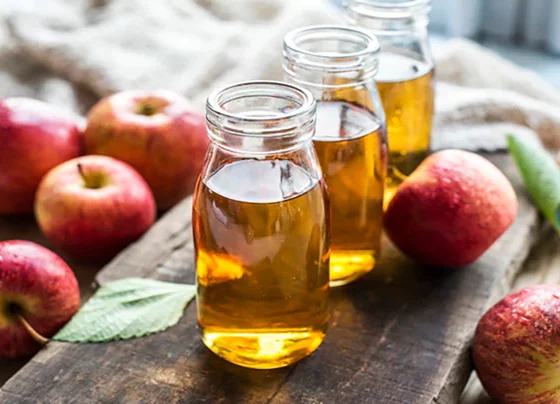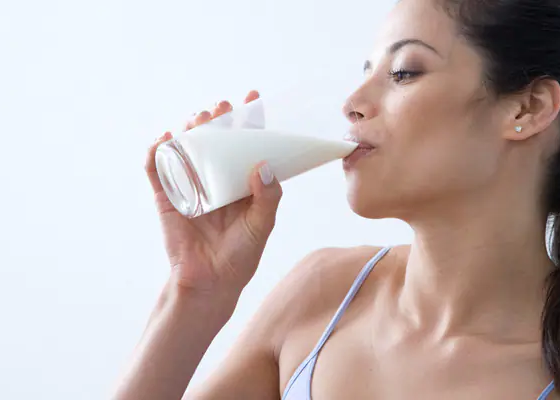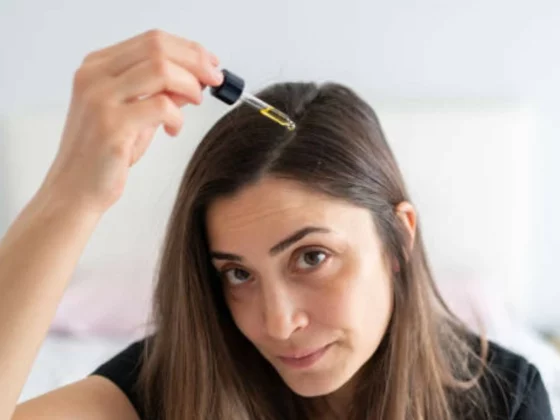In today’s fast-paced world, people are becoming more aware of the importance of maintaining good health. One of the essential nutrients required for a healthy body is Vitamin E. Vitamin E is a fat-soluble vitamin that plays an important role in our overall well-being. It is known for its antioxidant properties that help protect cells from damage caused by free radicals.
WellHealthOrganic.com brings you all the information you need to know about vitamin E, its benefits, and nutritional sources. In this article, we will delve into the various health benefits offered by vitamin E and how it can be incorporated into your diet to maintain good health.
Why Vitamin E is Important for our health
wellhealthorganic.com: vitamin-e-health-benefits-and-nutritional-sources, Research has shown that vitamin E may help prevent or delay chronic diseases such as heart disease, Alzheimer’s disease, and some types of cancer. It may also improve cognitive function in older adults and reduce inflammation in the body. In addition to its many health benefits, vitamin E can also be found naturally in a variety of foods such as nuts and seeds (especially almonds), leafy greens like spinach and broccoli, avocadoes, and vegetable oils.
However, it’s important to note that taking high doses of vitamin E supplements can be harmful to our health as it can cause bleeding problems or interfere with other medications we’re taking. Therefore, it’s best to get our daily dose of vitamin E through a healthy diet rather than supplements unless otherwise directed by a healthcare professional.
Health Benefits:
Vitamin E is a powerful antioxidant that helps protect our bodies from damage caused by free radicals, which are harmful substances produced during metabolism and exposure to environmental pollutants. It has several health benefits, including promoting healthy skin and hair, boosting the immune system, improving eye health, and reducing the risk of chronic diseases such as cancer and heart disease.
Additionally, vitamin E can help prevent cognitive decline in older adults by protecting brain cells from oxidative stress. Studies have also shown that it may help alleviate symptoms of premenstrual syndrome (PMS) in some women. However, it is important to note that taking high doses of vitamin E supplements can be dangerous and increase the risk of bleeding disorders. Therefore, it is best to obtain vitamin E through a balanced diet rich in sources such as nuts, seeds, vegetable oils, leafy greens, and fortified cereals.
Skin, Heart, Eyes, Brain
Skin, heart, eyes and brain are some of the most important organs in our body. They all have specific roles to play and require certain nutrients to function properly. Vitamin E is a powerful antioxidant that helps protect these vital organs from damage caused by free radicals.
For skin health, vitamin E helps reduce the appearance of fine lines and wrinkles by nourishing the skin from within. It also helps protect the skin from UV damage and pollution. For heart health, vitamin E has been shown to improve circulation and lower blood pressure. It can also help prevent the formation of blood clots which can lead to heart attacks or strokes.
In terms of eye health, vitamin E plays an important role in protecting against age-related macular degeneration (AMD) which is a leading cause of blindness among older adults. Finally, for brain health, vitamin E has been shown to improve cognitive function and memory in aging adults. It may also help prevent or delay the onset of Alzheimer’s disease by reducing oxidative stress in the brain.

Nutritional Sources:
Vitamin E is a vital nutrient that the body needs to function properly. It serves as an antioxidant, helping to protect cells from damage caused by free radicals. While the body can produce some vitamin E on its own, it is important to get enough of this nutrient from dietary sources as well. Some of the best sources of vitamin E include nuts and seeds such as almonds, sunflower seeds, and hazelnuts. Oils derived from these foods are also good sources of vitamin E, such as sunflower oil and almond oil.
Leafy green vegetables like spinach and kale are also rich in vitamin E, along with avocados and sweet potatoes. Incorporating these foods into your diet can help ensure that you are getting enough of this crucial nutrient to support overall health and well-being. While many processed foods may be fortified with additional vitamins and minerals (including vitamin E), it is always best to focus on whole food sources whenever possible for optimal nutrition benefits.
Nuts, Seeds, Avocado, Spinach
Nuts, seeds, avocado, and spinach are all excellent sources of Vitamin E. Vitamin E is an antioxidant that helps protect cells from damage caused by free radicals. It also plays a role in immune function and blood clotting. Nuts such as almonds, hazelnuts, and peanuts are incredibly rich in vitamin E. A handful of nuts can provide over half your daily recommended intake.
Seeds like sunflower seeds and pumpkin seeds are also a great source of vitamin E. They contain beneficial minerals such as magnesium and zinc along with healthy fats that promote heart health. Avocado is another great source of vitamin E while also being packed with other nutrients like fiber, potassium, and monounsaturated fats.
Spinach is a leafy green vegetable that provides numerous health benefits due to its high nutritional value. It’s a great source of antioxidants including vitamin C and beta-carotene which can help reduce inflammation in the body. Additionally, spinach contains iron which helps transport oxygen throughout the body to prevent fatigue or weakness. Incorporating these four nutrient-rich foods into your diet is an easy way to ensure you’re getting enough vitamin E along with other essential nutrients for optimal health.
Recommended Daily Intake:
Vitamin E is a powerful antioxidant that can help protect cells from damage. The recommended daily intake for adults is 15 milligrams, according to the National Institutes of Health (NIH). However, this amount may vary depending on age, gender, and health status. Pregnant women may need additional vitamin E to support fetal development.
Good sources of vitamin E include nuts and seeds such as almonds, sunflower seeds, and peanuts. Vegetable oils like wheat germ oil and sunflower oil are also high in vitamin E. Additionally, you can find vitamin E in some fruits like avocados and kiwi.
While it’s important to get enough vitamin E through your diet, excessive amounts can be harmful. Always consult with your healthcare provider before taking any supplements or drastically changing your diet to ensure you’re meeting your nutritional needs safely and effectively.
Vitamin E Deficiency:
Vitamin E is an essential nutrient that plays a crucial role in maintaining good health. It is a potent antioxidant that protects the body against free radicals and oxidative stress, which can cause cell damage and increase the risk of chronic diseases such as cancer, heart disease, and Alzheimer’s. However, despite its importance, many people may not get enough vitamin E from their diet alone.
A deficiency of vitamin E can lead to a range of health problems. For instance, individuals with low levels of this nutrient may experience muscle weakness or difficulty walking due to nerve damage. They may also be more susceptible to infections or have fertility issues. Additionally, research has linked vitamin E deficiency to an increased risk of liver disease and cognitive decline in older adults.
To prevent vitamin E deficiency, it is important to consume foods that are rich in this nutrient regularly. Some good sources include nuts and seeds like almonds, sunflower seeds, and peanuts; leafy green vegetables like spinach; vegetable oils such as sunflower oil or wheat germ oil; and fortified cereals or other grain products. If you suspect you may have a vitamin E deficiency or have concerns about your dietary intake of this nutrient, consult your healthcare provider for advice on how best to supplement your diet with additional sources of vitamin E.
Symptoms and Risks
Symptoms and risks associated with Vitamin E deficiency can vary depending on the severity of the deficiency. Mild deficiencies may not cause any noticeable symptoms, while more severe cases can lead to serious health problems. Some common symptoms of this deficiency include muscle weakness, vision problems, tingling in the hands and feet, and poor immune function.
Risks associated with a Vitamin E deficiency include an increased risk of infections due to a weakened immune system. Additionally, low levels of Vitamin E have been linked to an increased risk of certain types of cancer such as breast and prostate cancer. A lack of this nutrient can also lead to neurological disorders like dementia and Alzheimer’s disease. In pregnant women, a deficiency in Vitamin E may increase the risk of preterm birth or even miscarriage.
Precautions
When it comes to consuming vitamin E, it’s essential to exercise caution. Vitamin E is a fat-soluble vitamin that can accumulate in the body over time and lead to toxicity. Consequently, you should avoid taking high doses of vitamin E supplements as they may cause adverse effects ranging from nausea and diarrhea to blurred vision and bleeding.
It’s also important to be cautious when purchasing vitamin E supplements. Not all supplements are created equal, and some may contain additives or contaminants that could be harmful. Look for products with “USP verified” or “NSF certified” on the label as these third-party organizations test dietary supplements for purity, potency, and quality.
Lastly, while adding vitamin E-rich foods to your diet is generally safe, individuals with certain health conditions like diabetes or blood clotting disorders should consult their healthcare provider before consuming large amounts of vitamin E as it may interact with medications or worsen their condition.
Consultation before supplements
Before taking any supplements, it is crucial to consult a healthcare professional. This is because supplements may contain active ingredients that could interact with other medications or medical conditions. For example, taking too much vitamin E can increase the risk of bleeding in people taking blood-thinning medications such as warfarin. Similarly, high doses of vitamin A can be toxic and cause liver damage.
A consultation with a healthcare professional can also help determine if the supplement is necessary in the first place. In some cases, a balanced diet may provide all the necessary nutrients without the need for supplements. Additionally, certain health conditions may require specific types or doses of supplements that should only be prescribed by a qualified practitioner.
In summary, while supplements can have many health benefits when taken correctly, it is important to seek advice from a healthcare professional before starting any supplement regimen. This will ensure that one’s overall health and well-being are not compromised by interactions or overdoses that could have been avoided with proper consultation.
Conclusion:
In conclusion, vitamin E is a vital nutrient that plays an essential role in maintaining our overall health and well-being. This potent antioxidant can help boost our immune system, protect against free radical damage, and keep our skin healthy and glowing. Incorporating vitamin E-rich foods into your diet or taking supplements can be an effective way to ensure you are getting enough of this vital nutrient.
Additionally, it’s crucial to understand that the best way to obtain all the benefits of vitamin E is through natural sources like nuts, seeds, fruits, and vegetables. While supplements may seem like a convenient option, they often lack the fiber and other nutrients found in whole foods. Therefore, it’s recommended to consume a balanced diet with plenty of fresh produce as part of a healthy lifestyle for optimal health outcomes.
Overall, by prioritizing vitamin E intake as part of your daily routine along with other good nutrition habits like staying hydrated and exercising regularly can help you achieve optimal wellness throughout your lifetime.
Importance of including Vitamin E in the diet
Vitamin E is an essential nutrient that plays a vital role in maintaining good health. It acts as a powerful antioxidant and helps protect our cells from damage caused by free radicals. Including vitamin E in your diet can help prevent chronic diseases such as heart disease, cancer, and Alzheimer’s disease.
Vitamin E is also known for its ability to support skin health. It helps reduce inflammation and promotes healthy collagen production, which keeps the skin looking young and vibrant. Additionally, studies have shown that vitamin E can help improve eye health, specifically reducing the risk of age-related macular degeneration.
Some excellent sources of vitamin E include nuts such as almonds and peanuts, seeds like sunflower seeds and pumpkin seeds, leafy greens like spinach and kale, avocadoes, sweet potatoes, and whole grains. Incorporating these foods into your daily diet can ensure you are getting enough vitamin E to reap its numerous benefits.
















